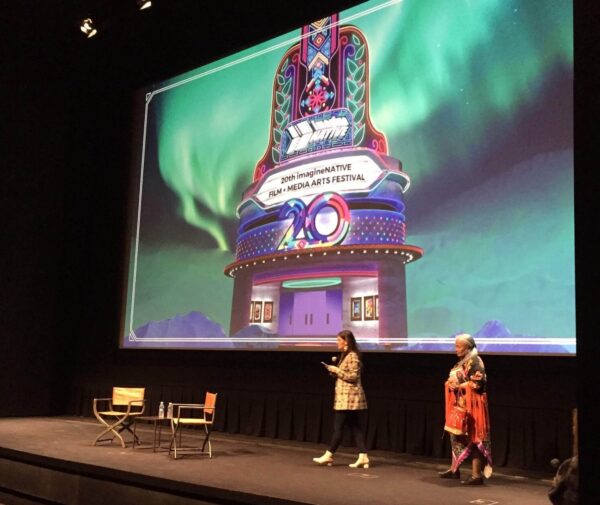
- Details
- By Native News Online Staff
TORONTO — For more than two decades, the imagineNATIVE Film + Media Arts Festival has celebrated Indigenous storytelling in film, video, audio, digital and other forms of interactive art. While it's based in Canada, imagineNATIVE has spotlighted a diverse roster of talent from around the globe, reflecting the dynamism of Indigenous nations in contemporary media.
Now, with COVID-19 concerns still looming, festival organizers announced this year’s festival has moved online and will run October 20-25.
The event, now in its 21st year, may have moved to a streaming platform, but organizers confirmed it will feature as much Native talent as ever. The six-day digital gathering will spotlight over 100 Indigenous artists while presenting live screenings, featured discussions, interactive engagements, live pitches, performances, virtual exhibitions, and other special events.
“With the community as a priority, the 2020 imagineNATIVE Film + Media Arts Festival will be guided by Indigenous practices of gifting and reciprocity,” said Artistic Director Niki Little in a statement. “To give a gift is an act of acknowledgement. It comes with notions of collective responsibility and opportunities to name relationships between nations.” In addition to artistic and industry offerings, imagineNATIVE will be “gifting from the spirit and for the spirit,” according to a release. Items and goods highlighting Indigenous artists and companies will be handed out during a series of giveaways during the festival. imagineNATIVE Film + Media Arts Festival October 20-25, 2020 - CLICK HERE for screening details
More Stories Like This
Native News Weekly (August 25, 2024): D.C. BriefsNavajo Nation Mourns the Passing of Former Vice President Rex Lee Jim
Deb Haaland Earns Endorsement From Communications Workers of America Local 7076
University Soccer Standout Leads by Example
Two Native Americans Named to Democratic Congressional Campaign Committee's“Red to Blue” Program
Help us defend tribal sovereignty.
At Native News Online, our mission is rooted in telling the stories that strengthen sovereignty and uplift Indigenous voices — not just at year’s end, but every single day.
Because of your generosity last year, we were able to keep our reporters on the ground in tribal communities, at national gatherings and in the halls of Congress — covering the issues that matter most to Indian Country: sovereignty, culture, education, health and economic opportunity.
That support sustained us through a tough year in 2025. Now, as we look to the year ahead, we need your help right now to ensure warrior journalism remains strong — reporting that defends tribal sovereignty, amplifies Native truth, and holds power accountable.
 The stakes couldn't be higher. Your support keeps Native voices heard, Native stories told and Native sovereignty defended.
The stakes couldn't be higher. Your support keeps Native voices heard, Native stories told and Native sovereignty defended.
Stand with Warrior Journalism today.
Levi Rickert (Potawatomi), Editor & Publisher

